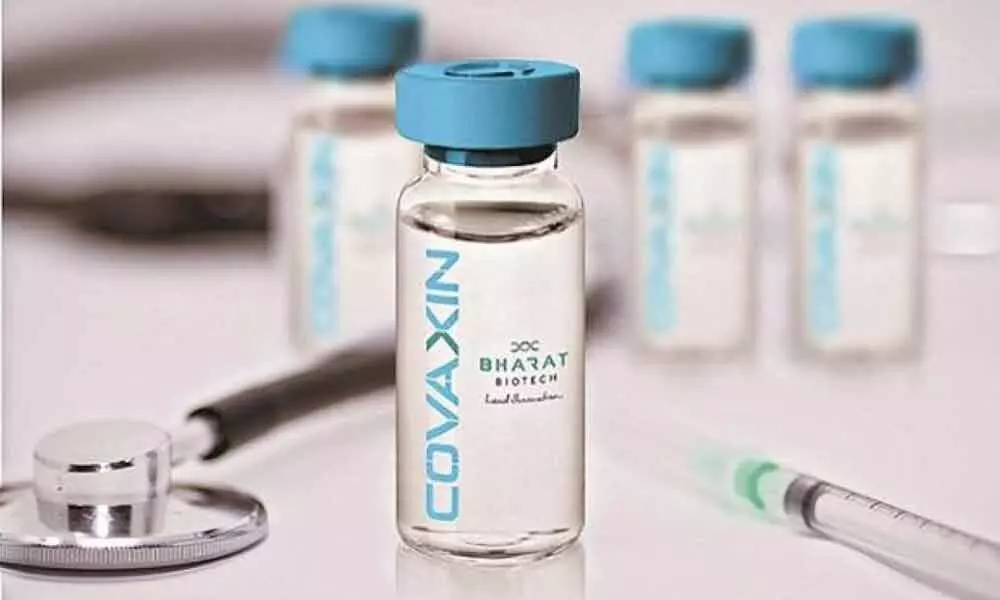Live
- DSS to launch gender campaign today
- MJCET holds first-ever 24-hr datathon
- TDP, JSP, YSRCP urged to oppose Wakf Bill
- T-SAT to launch new programme on ‘General Studies’
- Cops silence deafening noise of 100 bikes
- Guv inaugurates medical screening camp for Raj Bhavan staff
- Job fair for pharmacist roles tomorrow
- New ration cards to be issued in January
- Job mela at Masab Tank tomorrow
- New toilets facilitated for MPP school students
Just In
Bharat Biotech begins Covaxin supplies to 14 states


WHO requires additional information to list Covaxin
Bharat Biotech has started direct supplies of its Covid-19 vaccine Covaxin to 14 states.
Hyderabad: Bharat Biotech has started direct supplies of its Covid-19 vaccine Covaxin to 14 states.
The states are Andhra Pradesh, Assam, Chhattisgarh, Delhi, Gujarat, Jammu & Kashmir, Jharkhand, Madhya Pradesh, Maharashtra, Odisha, Tamil Nadu, Telangana, Uttar Pradesh and West Bengal.
The Hyderabad-based company said it started the supplies based on the allocations received by the Government of India.
"Requests have been received from other states, & will be processed for distribution based on availability of stocks 24x7," tweeted Bharat Biotech co-founder and Joint Managing Director Suchitra Ella.
The company, however, has not come out with details of the supplies like the number of doses supplied to the states.
Bharat Biotech on April 24 announced pricing for Covaxin. It fixed the price of Covaxin at Rs 600 per dose for state governments.
However, it later slashed the price to Rs 400. This came after Serum Institute of India (SII) cut the price of Covishield to Rs 300 from Rs 400 earlier.
The two vaccine makers slashed the prices after the central government reportedly made a request to them amid the row over different pricing for the central and state governments.
For private hospitals, Bharat Biotech fixed the price at Rs 1,200 per dose. This is twice the cost fixed for Covishield.
For exports, Bharat Biotech has priced India's first indigenous Covid vaccine at $15-$20 (Rs 1,125-1,500).
Ever since the launch of Covid vaccination programme in India, Bharat Biotech and SII have been supplying their vaccines to the Centre at Rs.150 per dose.
While Bharat Biotech is likely to continue the supplies to the Centre at the same price, SII is seeking to revise this to Rs 400.
Both Bharat Biotech and SII have announced that they are reserving 50 per cent of their production capacities for supplies to the central government.

© 2024 Hyderabad Media House Limited/The Hans India. All rights reserved. Powered by hocalwire.com






